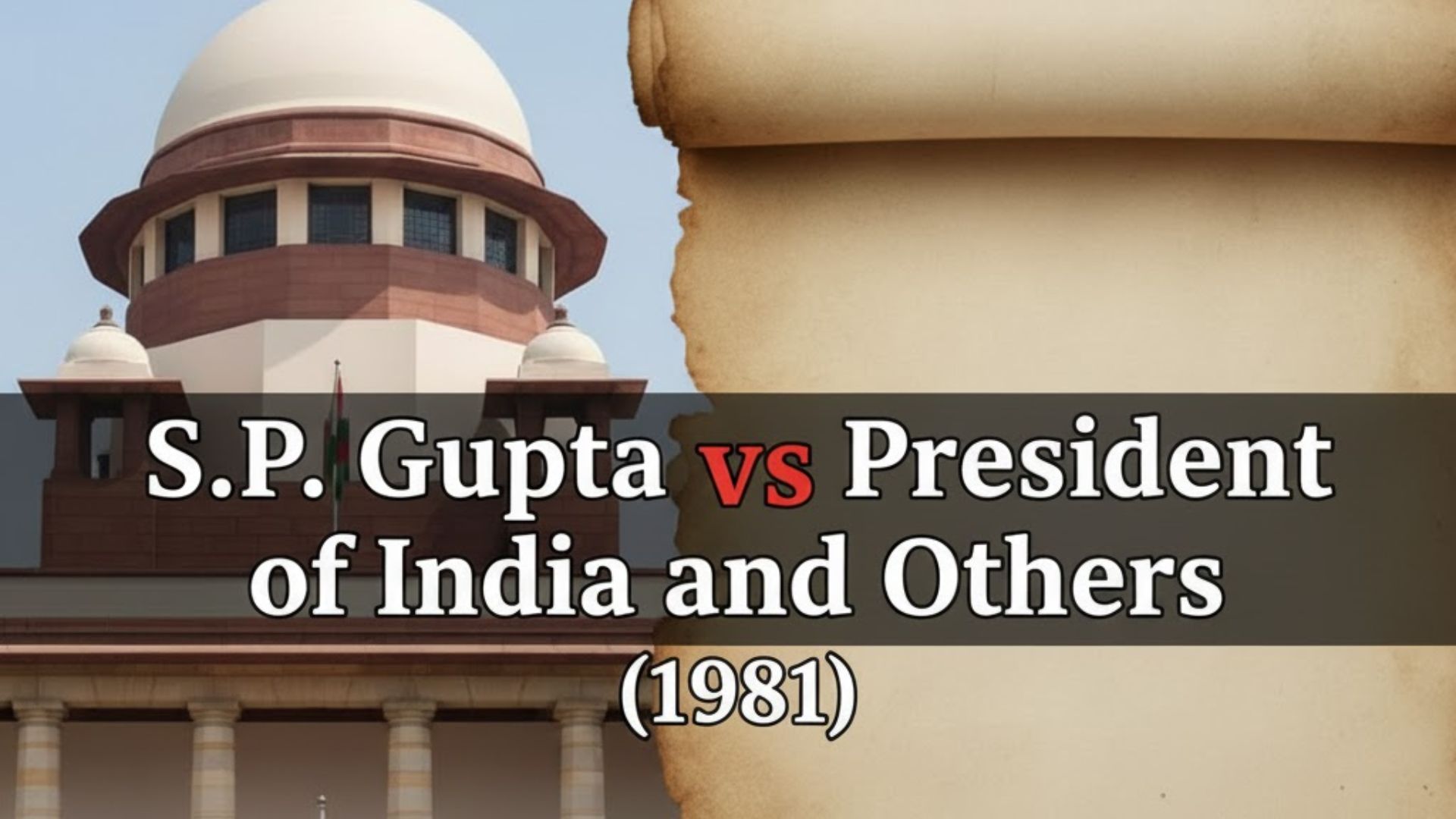
Case Summary: S.P. Gupta vs President of India and Others (1981)
**Case Stats:**
Name of the Court: Supreme Court of India
Case No: Transferred Case Nos. 2, 6, 19, 20, 21, 22, 24 of 1981; W.P. No. 274 of 1981; SPL (Civil) No. 1509 of 1981
Date of Decision: 30-12-1981
Bench: Full Bench
Hon'ble Judges: V. D. Tulzapurkar, J; S. Murtaza Fazal Ali, J; R. S. Pathak, J; P. N. Bhagwati, J; E. S. Venkataramiah, J; D. A. Desai, J; A. C. Gupta, J
Final Decision: Overruled
Citations: AIR 1982 SC 149; (1981) 1 SCC 87 Supp; (1982) 2 SCR 365
[Judgment Source]
https://www.courtkutchehry.com/Judgement/Search/AdvancedV2?docid=279525
Facts of the Case
The case arose from a circular dated 18th March 1981 issued by the Law Minister, P. Shiv Shankar, to Governors and Chief Ministers, suggesting that one-third of High Court judges be appointed from outside the respective states to promote national integration. The petitioners, advocates in the Bombay High Court, challenged this circular as a threat to judicial independence, claiming it violated the basic structure of the Constitution. Multiple writ petitions filed in various High Courts were transferred to the Supreme Court under Article 139A for adjudication by a seven-judge bench.
Law Points Raised
- Whether the circular violated the independence of the judiciary, a basic feature of the Constitution.
- Scope of executive power in judicial appointments under Articles 124 and 217.
- Role of the Chief Justice of India in judicial appointments.
- Extent of permissible transfer of judges between High Courts.
- Whether seeking consent from judges for transfer infringes judicial independence.
Acts / Provisions / Articles Referred
Constitution of India — Article 124, Article 136, Article 139A, Article 163, Article 19(1)
Civil Procedure Code, 1908 — Order 17 Rule 2, 91, 92
Criminal Procedure Code, 1973 — Section 133, Section 162, Section 162(1)
Evidence Act, 1872
Judgements Referred
Northern Securities Co. v. United States (1903) 193 US 197
Obiter Dicta
The Court stressed that constitutional interpretation must remain free from political or emotional influences and must focus on maintaining the independence of the judiciary as part of the Constitution's basic structure.
Ratio Decidendi
The independence of the judiciary is a basic feature of the Constitution. While the executive has a role in judicial appointments, the primacy of the Chief Justice of India’s opinion must be respected. The circular was seen as executive overreach, undermining judicial independence.
Final Ruling
The Court held that the executive cannot undermine judicial independence by compelling or coercing judges into consenting for transfers. Any such consent obtained through the impugned circular would be void.
Relevant Paragraph Numbers
Paras: 1-5, 10-12, 24-30, 50-55, 68-75, 95-100, 120-135
Summary
This landmark judgment, also known as the 'First Judges Case', clarified the scope of judicial appointments and transfers, emphasizing the independence of the judiciary as a constitutional guarantee. It shaped the debate on the collegium system and executive interference in judicial matters.
[Judgment Source]
https://www.courtkutchehry.com/Judgement/Search/AdvancedV2?docid=279525